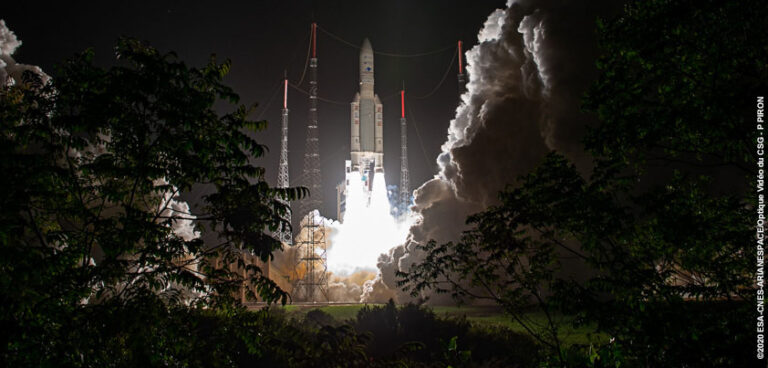A South Korean weather satellite has been launched into space from a base in French Guiana.
The Geo-Kompsat-2B satellite was among the payload on board the latest launch of the European Ariane 5 rocket.
It shared the payload with JCSAT-17, a Japanese commercial satellite, lifting off from the Guiana Space Centre in Kourou on February 18.
Built and operated by the Korea Aerospace Research Institute (KARI), Geo-Kompsat-2B is the second weather satellite in a Korean government program for monitoring weather on Earth and in space.
Geo-Kompsat-2B will monitor meteorological conditions on Earth and its oceans via two onboard devices, the Geostationary Ocean Color Imager (GOCI) II and the Geostationary Environment Monitoring Spectrometer (GEMS). These two scientific payloads were provided by Airbus Defence and Space and Ball Aerospace & Technologies, respectively.
Geo-Kompsat-2B will join an earlier KARI satellite already in orbit, Geo-Kompsat-2A, which currently carries out meteorological and space weather monitoring.
The satellite, which has an expected lifespan of 10 years, will rely on a single lithium-ion battery and chemical bi-propellant for power and propulsion.
It is the eighth South Korean satellite launched by Arianespace, which has one more KARI satellite currently scheduled on its future manifest. The Ariane 5, part of the Ariane rocket family, has flown more than 100 missions since it first began operating in 1996.



